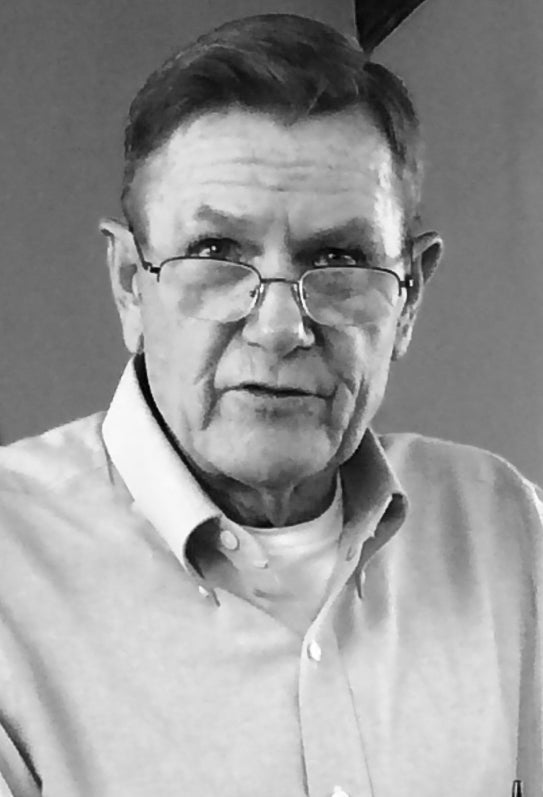Rwanda Remembered
Published 5:00 am Wednesday, August 3, 2022
By John Nelson
When looking through some of my old logs to see what I was doing this week in July in past years, I came across a 1994 entry that reminded me of the shocking news coming out of Rwanda at the time that as many as 800,000 people might have been brutally murdered in what came to be known as the Rwandan Genocide.
The entry stated that over the weekend of July 23-24, the ships of Maritime Prepositioning Squadron Two were put on standby to depart their base at Diego Garcia within a 2-hour notice. Since the slaughter had already occurred before that July weekend, I couldn’t remember why we had been put on alert at that time.
An internet search reminded me that President Bill Clinton had on July 22 initiated Operation Support Hope. His directive launched an American military operation to provide immediate aid to a country devastated by internal fighting until the humanitarian effort could be turned over to U.N. management.
To understand why our squadron might have been tasked to take part in the operation, one must go back to the 1980’s when it became apparent that future troop deployments to world hotspots would need to take place quickly. That necessity prompted the formation of three MPS squadrons with each capable of storing and delivering all the military hardware and supplies required to support a Marine Expeditionary Brigade for thirty days of field service.
The ships of MPS Two were stationed on Diego Garcia in the middle of the Indian Ocean, and after a few years of exercises and cooling our heels on this beautiful little atoll, the MPS concept was tested when Saddam Hussein’s Iraqi forces invaded Kuwait on August 2, 1990.
The war-fighting materials offloaded from MPS Two in Jubail, Saudi Arabia and placed in the hands of marines from the 7th Marine Expeditionary Brigade made that unit by August 20, the first heavy-equipped, ground force blocking further incursion by Iraqui forces.
In the following months of what was called Desert Shield, men and materials were gathered until the launching of operation Desert Storm that successfully forced Hussein’s troops out of Kuwait.
Our great success in what we now refer to as the first Gulf War coupled with the breakup of the troublesome Soviet Union made America and her allies confident that more could be done to promote world stability
That mindset led military planners to consider ways to expand the mission of MPS squadrons. At our next load out back in the U.S., our cargo plan was slightly modified to facilitate the offloading of things like provisions, camp kitchens, water, fuel, and medical supplies that could support relief and humanitarian missions.
A test of America’s ability to restore world order short of warfare came in December of 1992 when our squadron was sent to Mogadishu, Somalia, a country ravaged by famine and civil wars. U.S. marines were already on scene and a combination of American and U.N. forces and international aid workers followed to feed the hungry and restore order in an operation called Restore Hope.
In hindsight, it can be said that Americans didn’t comprehend the complexity of the environment they were entering. With clans, sub-clans, and warlords, Somalia was a medieval-like quagmire where many of the inhabitants preferred an almost intolerable status quo to meddlesome outsiders. Instead of ending the chaos and bloodshed, American forces got pulled into it – an example on a large scale of why law enforcement officers dread being called to scenes of domestic violence.
The Somalia experience was still fresh in mind when reports began to leak out of Rwanda in the spring of 1994 that Hutu death squads were exterminating Tutsis. There were small parties of U.N. peacekeepers on scene at the time, and some remained even as the violence began to spin out of control. These small contingents were in some incidences successful in stopping the slaughter, but when ten Belgian paratroopers were sliced and diced for their efforts, the scene was reminiscent of the dead American soldier being dragged through the streets of Mogadishu.
The Belgians and most other U.N. peacekeepers pulled out after the paratroopers were killed, and America held back because the Clinton administration didn’t want to blunder into another disaster like our intervention in Somalia.
Operation Support Hope might have been too little too late, and as it turned out, our squadron didn’t participate. Our role would have been to steam over to Mombasa, Kenya to offload relief supplies, but since our cargo would have required a thousand-mile airlift to Kigali, Rwanda, it was decided to just use airlift to support the operation.
In the 28 years since I made that entry in my log, Americans have not stopped debating why our country didn’t do more to stop the bloodshed in Rwanda.



